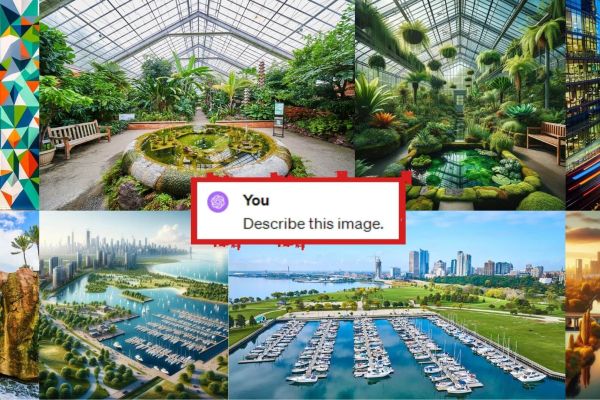What is the deal with SEO?
How to Make Google Love Your Website
Have you ever wondered why your website isn't getting the love it deserves? Well, it could be because Google doesn't know you exist! That's where SEO comes in. It's like giving your website a makeover to make it more attractive to Google.
TRIGGER WARNING: The following content is overwhelmingly technical and NJP can save you the time and hassle in managing your businesses SEO. Click the link below to skip the technical details and start a conversation with us:
Let NJP handle your website ranking
What is SEO, you ask? It's like playing hide and seek with Google. You want Google to find you and show you off to the world. So, you need to make sure your website is optimized for the keywords your customers are searching for.
The process of doing this involves learning and mastering your SEO. Search engine optimization (SEO) is the practice of improving a website's visibility and ranking in search engine results pages (SERPs). SEO is an essential aspect of digital marketing, and it can help businesses to attract more traffic, generate leads, and increase conversions.
Search engines like Google, Bing, and Yahoo use complex algorithms to determine the relevance and usefulness of web pages for specific search queries. These algorithms take into account hundreds of different factors, such as the website's content, structure, and backlinks. By optimizing your website for these factors, you can improve your chances of ranking higher in search results and driving more traffic to your site.
Let’s take a look at some of the main ways to improve your SEO.
Keyword research and optimization
Keyword research is the process of identifying the search terms and phrases that your target audience is using to find information online. By understanding what your potential customers are searching for, you can optimize your website's content to better match their needs and interests.
To do keyword research, you can use tools like Google's Keyword Planner or Ahrefs. These tools can help you identify high-traffic, low-competition keywords that are relevant to your business.
Once you've identified your target keywords, you can optimize your website's content by incorporating those keywords into your titles, headings, and body copy. However, it's important to avoid "keyword stuffing," which is the practice of overloading your content with keywords in an attempt to manipulate search rankings. Instead, focus on creating high-quality, informative content that uses your target keywords in a natural and meaningful way.
On-page optimization
Think of on-page SEO like decorating your house to make it look pretty. You want to use the right words (keywords) in your content, title tags, and URLs. That way, Google knows what your website is all about.
Some key on-page optimization factors include:
- Title tags: The title tag is the HTML element that appears in the browser tab and as the clickable headline in search results. Your title tag should be descriptive, compelling, and include your target keyword.
- Meta descriptions: The meta description is the short snippet of text that appears beneath the title tag in search results. Your meta description should be concise, informative, and encourage users to click through to your site.
- Header tags: Header tags (H1, H2, H3, etc.) help to organize your content and make it easier to read. Using header tags can also signal to search engines what your content is about and help to improve its relevance for specific search queries.
- Image optimization: Image optimization involves adding descriptive alt text and file names to your images to help search engines understand their context and relevance.
Wait, what about Meta Keywords? Believe it or not, meta keywords are no longer used by search engines, as they were often abused by spammers in the past. Instead, search engines use other signals to determine the relevance and ranking of a webpage, such as the page content, meta title, and meta description.

Are your eyes glazing over already?
We get it! This is very boring and technical information and, quite frankly, the type of details we don’t think a business owner SHOULD have to worry about. That is why professional agencies like NJP exist. We can fully handle this part of the process in growing your business.
Talk with us about growing your businesses presence online
Off-page optimization
Off-page SEO is like making new friends. You want to build relationships with other websites and influencers in your industry. That way, they can help to promote your website and increase your online visibility.
The most important off-page optimization factor is backlinks, which are links from other websites to your site.
Backlinks are important because they signal to search engines that other websites consider your content to be high-quality and valuable. However, not all backlinks are created equal. High-quality, relevant backlinks from authoritative websites are more valuable than low-quality, irrelevant backlinks from spammy sites.
To build high-quality backlinks, you can engage in activities like guest blogging, broken link building, and social media marketing. These tactics can help you to build relationships with other website owners and influencers in your industry, and they can also help to increase your brand's visibility and reach.
INFO: What are broken links? No, this doesn't involve breaking any links (that would be mean). It's more like finding broken links on other websites and suggesting they replace them with links to your own website. It's like helping a friend fix their broken vase and getting some free advertising in return!
Technical SEO
Technical SEO is like making sure your house is built on a solid foundation. You want to make sure your website is easy to navigate and loads quickly. That way, Google can crawl your website and index it in their search results.
Factors like site speed, mobile responsiveness, and site architecture. are important because they can affect how search engines crawl and index your site, as well as how users interact with it.
Some key technical SEO factors to consider include:
- Site speed: Slow loading times can negatively impact your site's ranking and user experience. You can use tools like Google's PageSpeed Insights to identify areas for improvement.
- Mobile responsiveness: With more and more users accessing the internet from mobile devices, it's important to ensure that your site is optimized for mobile devices. You can use tools like Google's Mobile-Friendly Test to see how your site performs on mobile.
- Site architecture: The structure of your website can affect how search engines crawl and index your content. You should ensure that your site is organized in a logical, easy-to-navigate way, with clear categories and tags.
What now?
So, if you want to make Google fall head over heels in love with your website, you need to optimize it for keywords, build relationships with other websites, and make sure it's technically sound. That way, you'll be the talk of the town (or at least the search results)!
SEO is an essential aspect of digital marketing that can help businesses to attract more traffic, generate leads, and increase conversions. By optimizing your website for keywords, on-page and off-page factors, and technical factors, you can improve your chances of ranking higher in search results and driving more traffic to your site.
Ok, that is a lot, we know! The good news is that our goal at NJP is to handle ALL of this for you. That’s right, not only do we build stunning quality websites, we also have plans to continually work on all of these above techniques and strategies so that your SEO is on top of its game and continues to improve.
From keyword and on-page optimization to backlinks, blogging, and social media management, we have all sorts of methods you can utilize to grow your business.
Recent Blogs
Four Seasons from Above in Downtown Fort Wayne, Indiana
Unlocking the Power of QR Codes

About the Author
Founder and visual artist, specializing in all aspects of a businesses presence from imagery and video to graphics and web. A graduate of IPFW with a Bachelor in Fine Arts, Concentration Photography as well as an Associates Degree in Business. His personal photography works are focused on landscape, travel, and aerial photography.







